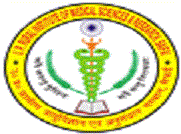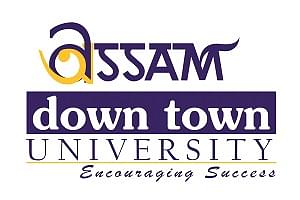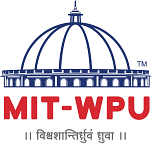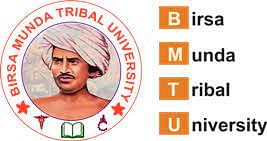Introduction about Ph. D in Advertising Management
A Ph.D. in Advertising Management from top college is
an advanced academic program designed for individuals seeking expertise in the
theory, research, and practical applications within the field of advertising.
This rigorous doctoral degree combines elements of marketing, communication
theory, consumer behaviour, and business management to provide a comprehensive
understanding of the advertising industry.
Throughout the
course of study, students delve deeply into various aspects of advertising,
including but not limited to advertising strategy, creative development, media
planning, branding, and consumer psychology. They explore the latest trends,
technologies, and methodologies shaping the advertising landscape, and they
develop critical analytical skills to assess the effectiveness of advertising
campaigns.
One of the primary
focuses of a Ph.D. in Advertising Management is original research. Students are
typically required to conduct independent research projects, culminating in a
dissertation that contributes new knowledge to the field. This research may encompass
topics such as advertising ethics, cross-cultural advertising, digital
advertising trends, or the impact of emerging media platforms on consumer
behavior.
Graduates of a
Ph.D. program in Advertising Management are prepared for careers in academia as
professors and researchers, as well as roles in industry, such as advertising
executives, marketing consultants, or advertising campaign analysts. With their
advanced understanding of advertising theory and practice, coupled with strong
research and analytical skills, they are poised to make significant
contributions to the ever-evolving field of advertising.
What is admission process for Ph. d in Advertising
Management ?
The admission process for Ph.D. in Advertising Management typically varies depending on the institution offering the
program. However, here's a general overview of what you might expect:
Research Programs: Begin by researching universities or
institutions that offer Ph.D. programs in Advertising Management or closely
related fields such as Marketing, Communication, or Business Administration.
Look into their faculty expertise, research areas, and program curriculum to
ensure they align with your academic interests and career goals.
Meet Requirements: Review the admission requirements for each
program carefully. Typically, this includes holding a master's degree in a
relevant field, although some programs may accept exceptional candidates with
only a bachelor's degree. You may also need to meet minimum GPA requirements
and provide GRE scores.
Prepare Application
Materials: Gather all
required application materials, which usually include transcripts from previous
academic institutions, letters of recommendation, a statement of purpose
outlining your research interests and career objectives, a curriculum vitae
(CV) or resume, and any required standardized test scores.
Contact Potential
Advisors: Reach out to
faculty members whose research aligns with your interests to express your
interest in the program and inquire about potential research opportunities.
Having a faculty member willing to advise you can strengthen your application.
Submit Application: Complete and submit your application
through the university's online portal by the specified deadline. Be sure to
double-check all requirements and ensure that all materials are submitted
correctly.
Interview (if
applicable): Some programs
may require an interview as part of the admission process. If selected, prepare
for the interview by reviewing your research interests, academic background,
and career goals.
Wait for Decision: After submitting your application, you'll
need to wait for the admissions committee to review your materials. This
process can take several weeks to several months, depending on the program.
Receive Decision: Once the admissions committee has made a
decision, you'll be notified of your admission status. If admitted, you'll
receive information about next steps, including enrollment deadlines and any
additional requirements.
Consider Funding: Investigate potential funding
opportunities such as scholarships, grants, or assistantships offered by the
university or external organizations. Funding can help support your studies and
research throughout your Ph.D. program.
Accept Offer and
Prepare for Enrollment: If
you receive an offer of admission, carefully review the terms and conditions,
accept the offer by the specified deadline, and begin preparing for enrollment
in the program.
By following these
steps and carefully preparing your application materials, you can increase your
chances of being admitted to a Ph.D. program in Advertising Management and
embark on an exciting journey of advanced study and research in the field.
What is eligibility process for Ph. D in
Advertising Management ?
The eligibility criteria for Ph.D. in Advertising Management may vary depending on the institution
offering the program. However, here are some common eligibility requirements
you might encounter:
Educational
Background: Typically,
candidates must hold a master's degree in a related field such as Advertising,
Marketing, Communication, Business Administration, or a closely related
discipline. Some programs may accept exceptional candidates with only a
bachelor's degree, especially if they demonstrate strong academic performance
and relevant professional experience.
Academic
Performance: Candidates are
usually required to have a strong academic record, including a high undergraduate
and/or graduate GPA. The specific GPA requirement may vary by institution but
generally falls within the range of 3.0 to 3.5 on a 4.0 scale.
Standardized Test
Scores: Some institutions
may require applicants to submit scores from standardized tests such as the
Graduate Record Examination (GRE) or the Graduate Management Admission Test
(GMAT). However, this requirement is becoming less common, and many programs
now offer GRE/GMAT waivers or do not require these scores at all.
Letters of
Recommendation: Applicants
typically need to submit letters of recommendation from academic or
professional references who can attest to their academic abilities, research
potential, and suitability for doctoral study in Advertising Management.
Statement of
Purpose: Candidates are
often required to submit a statement of purpose or personal statement outlining
their research interests, academic background, career goals, and reasons for
pursuing a Ph.D. in Advertising Management at the institution.
Research Experience: While not always mandatory, having prior
research experience, such as conducting independent research projects,
publishing academic papers, or presenting at conferences, can strengthen your
application.
English Proficiency: For international students whose native
language is not English, proficiency in English is typically required. This is
usually demonstrated through standardized tests such as the Test of English as
a Foreign Language (TOEFL) or the International English Language Testing System
(IELTS).
Interview (if
applicable): Some programs
may require an interview as part of the admissions process. During the
interview, candidates may be asked about their research interests, academic
background, career goals, and fit for the program.
Additional
Requirements: Depending on
the institution, there may be additional requirements such as a writing sample,
a resume or curriculum vitae (CV), or specific coursework prerequisites.
It's essential to
carefully review the eligibility criteria for each Ph.D. program in Advertising
Management to which you plan to apply, as requirements may vary. Additionally,
reaching out to program coordinators or faculty members for clarification on any
specific requirements can be beneficial.
What is syllabus of Ph. D in Advertising Management
?
While the specific syllabus for Ph.D. in
Advertising Management can vary depending on the university and the
faculty expertise, here's a general overview of the topics that might be
covered throughout the program:
Foundations of
Advertising Management:
Historical overview
of advertising
Theoretical
frameworks in advertising
Role of advertising
in marketing communication
Ethics and
regulation in advertising
Research Methods in
Advertising:
Qualitative
research methods (e.g., interviews, focus groups, content analysis)
Quantitative
research methods (e.g., surveys, experiments, statistical analysis)
Advanced research
design and measurement techniques
Data analysis
software (e.g., SPSS, R, NVivo)
Consumer Behavior
and Psychology:
Psychological
theories relevant to advertising
Consumer
decision-making process
Influence of
advertising on consumer behavior
Cross-cultural
consumer behavior
Advertising
Strategy and Planning:
Advertising
campaign development and execution
Target audience
identification and segmentation
Brand positioning
and differentiation
Media planning and
buying strategies
Creative
Development and Execution:
Principles of
effective advertising creative
Copywriting and
visual communication
Creative strategy development
Testing and
evaluation of advertising creative
Media and Digital
Advertising:
Media landscape and
trends
Traditional media
channels (e.g., television, radio, print)
Digital advertising
platforms (e.g., social media, search engine marketing, display advertising)
Integration of
traditional and digital media strategies
Brand Management:
Brand equity and
brand positioning
Brand identity
development
Brand loyalty and
brand extension strategies
Brand measurement
and tracking
Advertising
Effectiveness and Evaluation:
Methods for
evaluating advertising effectiveness
Advertising ROI
measurement
Effectiveness of
different advertising formats and channels
Ethical
considerations in advertising research and evaluation
Special Topics in
Advertising Management:
Emerging trends in
advertising (e.g., influencer marketing, native advertising, programmatic
advertising)
Global advertising
strategies
Crisis
communication and reputation management
Advertising and
social responsibility
Dissertation
Research:
Proposal
development
Data collection and
analysis
Dissertation
writing and defence
This syllabus provides a broad overview of the topics typically covered in a Ph.D. program in Advertising Management. However, the specific courses and content may vary between institutions and may be tailored to align with faculty expertise and research interests.












